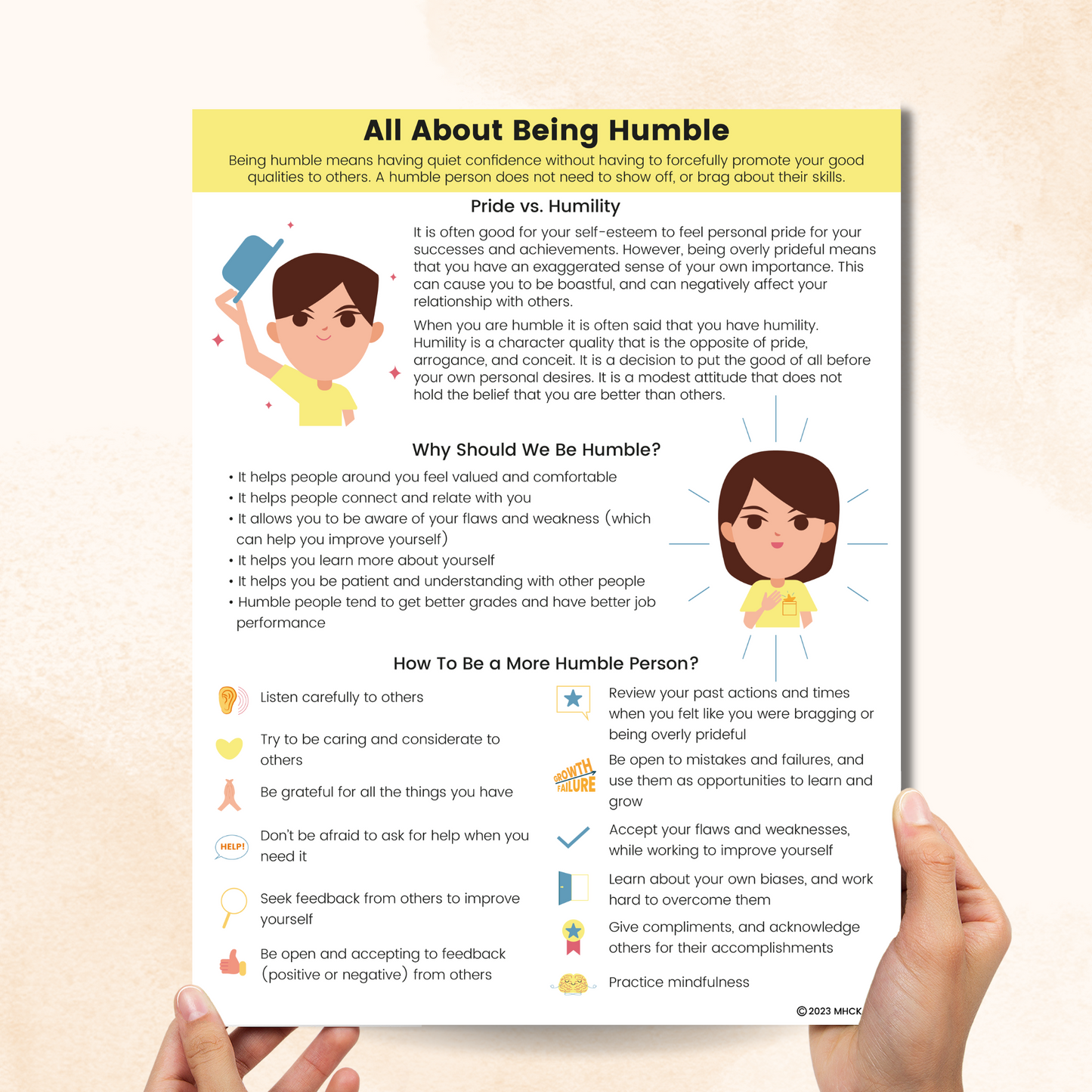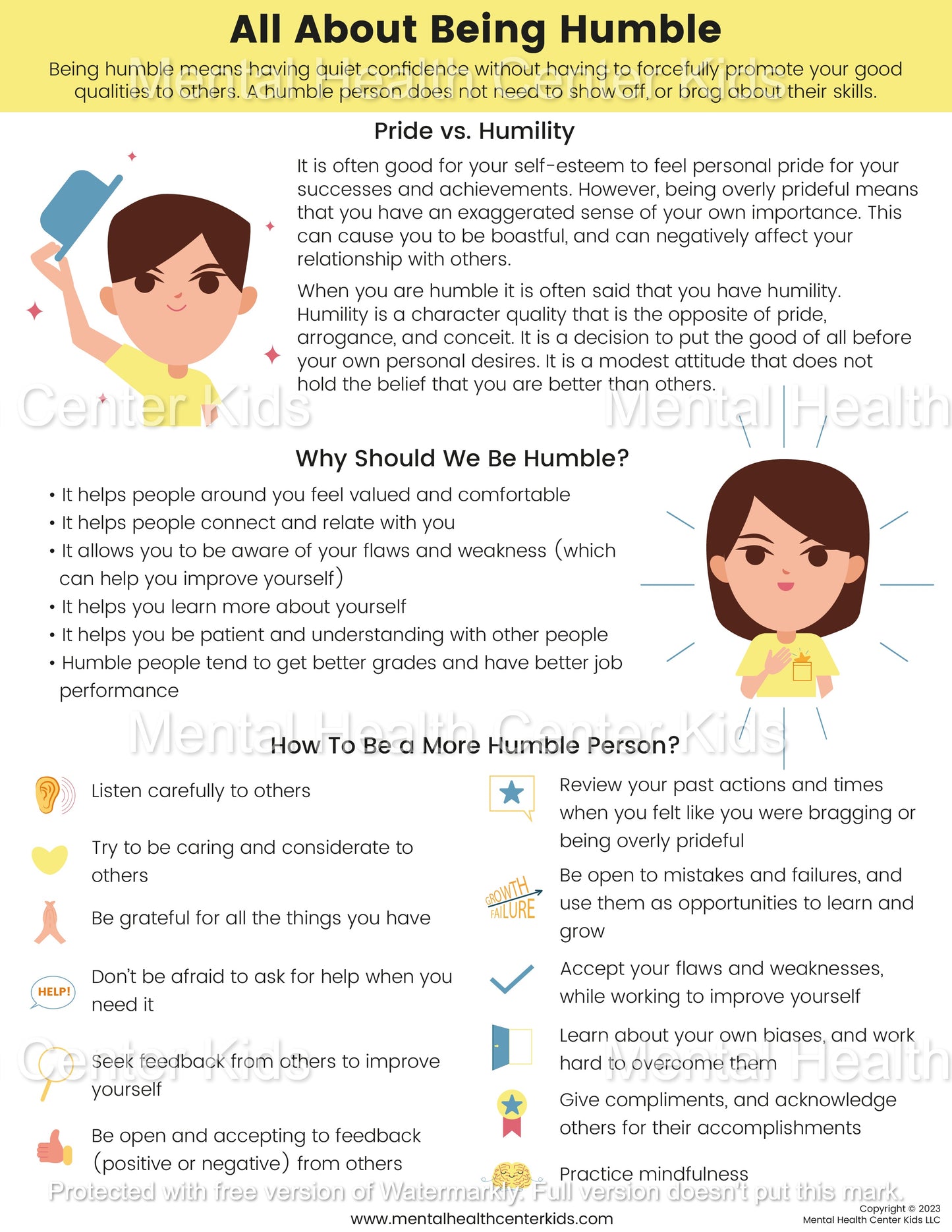All About Being Humble



Humility, or being humble, is not about undervaluing oneself or one's achievements. Instead, it involves recognizing and appreciating one's own successes while also being genuinely happy for the accomplishments of others. Research shows that learners who are humble are naturally curious, have a strong desire to understand complex concepts, and are willing to consider different perspectives.
The All About Being Humble handout is a beginner-friendly tool designed to help clients maintain a grounded perspective and develop a balanced self-image. It clearly defines humility and distinguishes it from pride, and also provides reasons why humility matters. At the bottom of the handout, clients will find a list of steps for becoming a more humble person.
Using this handout as part of their routine helps kids and teens avoid boasting, recognize and appreciate the unique strengths of others, and develop more meaningful relationships. Adults supporting them can encourage regular self-reflection on their actions and words. Children can challenge themselves each week by selecting one tip from the handout to implement.
Our Humility Worksheets are a helpful add-on to this handout.
*This item is an instant digital download. A link to download your files will be emailed to you once payment is confirmed.
Want more resources like this? Check out our full catalog of character education worksheets.
References:
- Arif, S. (2018). Ghazali's personality theory: A study on the importance of humility in early childhood. Medeniyetler İttifakı Enstitüsü.
- Bronk, K. C. (2008). Humility among adolescent purpose exemplars. Journal of Research in Character Education, 6(1).
- Guo, Z., Li, W., Yang, Y., & Kou, Y. (2021). Honesty‐humility and unethical behavior in adolescents: The mediating role of moral disengagement and the moderating role of system justification. Journal of Adolescence, 90(1), 11-22. https://doi.org/10.1016/j.adolescence.2021.05.009
- Porter, T., Schumann, K., Selmeczy, D., & Trzesniewski, K. (2020). Intellectual humility predicts mastery behaviors when learning. Learning and Individual Differences, 80, 101888. https://doi.org/10.1016/j.lindif.2020.101888
- Instant digital download
- File: PDF
- Size: 8.5" x 11"




